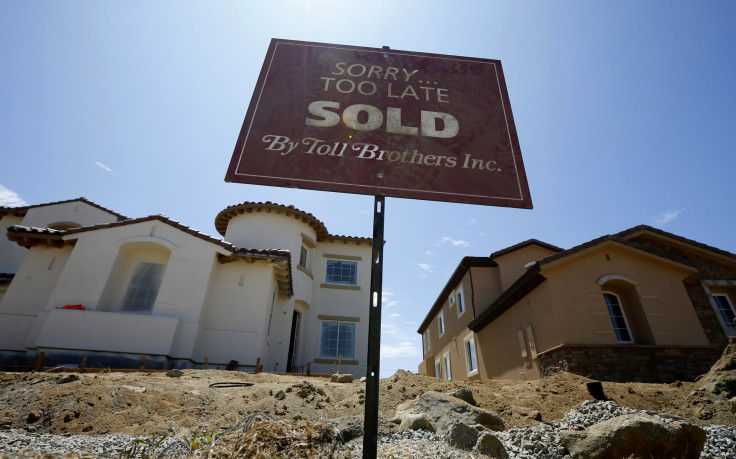Housing Trends 2016: Trump Win Sends Mortgage Rates Up And Fed Decision Could Do The Same

Real estate magnate Donald Trump's election upset Tuesday just made homes more expensive, and it's not because he's mandating that his name be put on them in huge, gold letters.
Investors, like many others, expected a Hillary Clinton victory, sending mortgage rates zigzagging as the likelihood of Trump's win mounted Tuesday night and uncertainty plagued the market. But the mortgage rate volatility transformed into a steady hike by the end of the week, a result of rising Treasury yields buoyed by Trump's likely implementation of a massive economic stimulus package.
Since Trump’s surprise election victory, the interest rate on government bonds, which directly impacts mortgage rates, soared, with 10-year Treasury yields jumping to 2.23 percent on Monday, up from 1.88 percent on Nov 8. The rise represented the market’s response to expectations of Trump’s $1 trillion, 10-year fiscal stimulus plan outlined in a Gettysburg, Pennsylvania speech in October, which was double the cost of opponent Hillary Clinton’s infrastructure proposal. Federal stimulus packages, like the one outgoing President Barack Obama deployed as a response to the 2008 financial crisis, can lead to improved economic conditions by spurring a surge in U.S. gross domestic product (GDP) and job market growth.
The rise in government bond yields pushed mortgage rates, which tend to follow the rates of government bonds, up by more than 0.20 percentage points between Tuesday and Thursday, according to MortgageNewsDaily, which tracks rates. The rise was largest for 30-year fixed-rate mortgages, which carried a 3.85 percent rate on Thursday, compared to a 3.62 percent rate on Tuesday.
Mortgage rates will likely continue to go up if the Federal Reserve decides to hike another related rate, the federal funds rate, after its meeting on Dec. 14. It could be the first in a series of hikes over the next couple of years.
Those considering a refinance should do so as soon as possible, Rick Sharga, executive vice president of the online real estate market Ten-X, told consumer financial services site Bankrate.
“I think if you’ve been sitting on the fence, the Trump election, plus the likelihood of Fed rate increases over the next 15 months, means you should jump off the fence right now,” he said.
Others warned of a repeat of the housing price bubble that led to the crisis in 2008.
“We’re back into a bubble condition in part because of low rates that have enabled people to buy houses much more expensive than their incomes could afford,” SMR Research Corp. president Stu Feldstein told the Wall Street Journal, adding that higher rates could cause home values to fall in about a third of the country by the end of next year.
The post-election rate trend may negatively impact the housing market’s most important new demographic: millennials. People aged 18 to 34 are expected to drive demand for housing in 2017, but only if the market supplies affordable, entry-level homes for the influx of first-time buyers—and higher interest rates certainly won’t help.
© Copyright IBTimes 2025. All rights reserved.






















